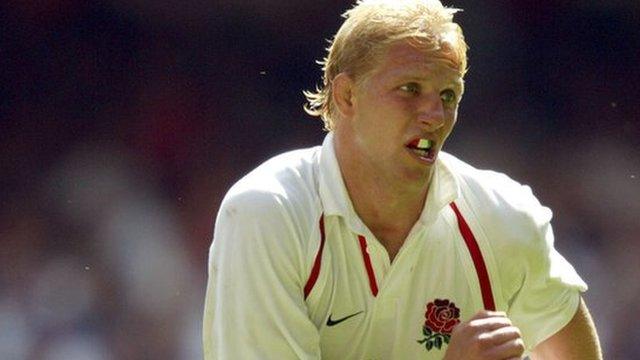Model's call for bowel illnesses to be NHS priority
- Published

Natalie-Amber Freegard underwent two emergency surgeries in two days in 2017
A woman who nearly died when her Crohn's disease was misdiagnosed as anorexia is calling for bowel illnesses to be made an NHS priority as cases rise.
Natalie-Amber Freegard, 29, said her GP was convinced her weight loss was due to an eating disorder until she collapsed in 2017.
Her parents were told to prepare for the worst as she went blind, had sepsis and kidney failure.
NHS England has been asked to comment.
A recent report, external by IBD UK suggests a lack of resources and late diagnosis is putting patients at risk and costing the NHS millions.
Ms Freegard, from Swindon, said: "If doctors even suspect it, they need to give us that colonoscopy straight away because it can be the difference between life and death.
"The fact that they're still managing to misdiagnose people is not okay."
The model said she had requested to be tested for Crohn's as her cousin also has the disease.
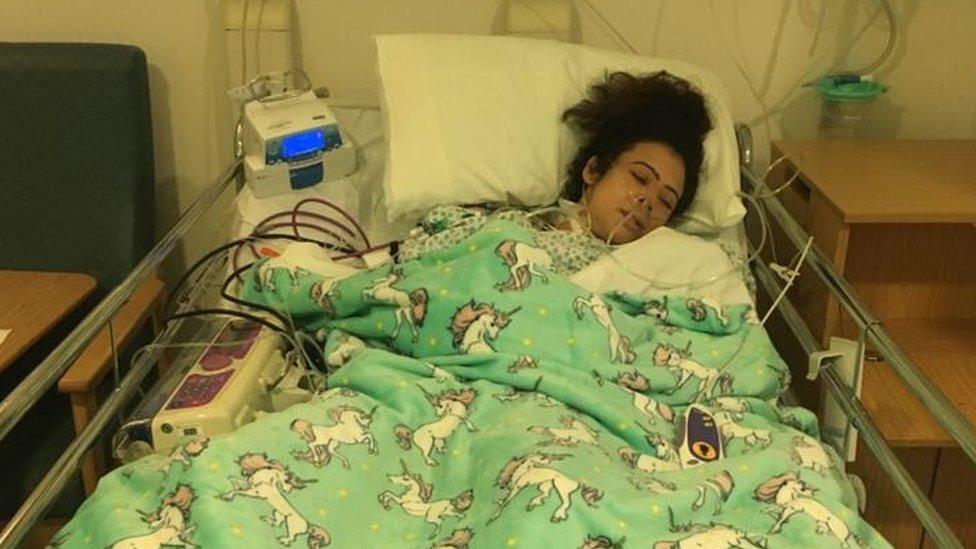
Doctors believed she was anorexic but she was losing weight due to Crohn's disease
It was only after being admitted to Great Western Hospital in Swindon in 2017 and undergoing two emergency surgeries in two days that she was diagnosed.
"My parents were told I wasn't going to make it," she recalled.
She ended up with a stoma, which was removed a year later.
Now she is joining calls from 17 national medical associations for faster diagnosis of the chronic illness.
Professor Bhupinder Sandhu, a consultant paediatrician and gastroenterologist at Bristol Children's Hospital, told the BBC cases of inflammatory bowel disease in children have tripled in 20 years in the South West.
She said: "It's a big burden for young people particularly and if they're not caught early they can suffer."
Half a million people in Britain live with Crohn's disease or ulcerative colitis, external, life-long autoimmune diseases which affect the colon.
The national research from IBD UK, a coalition of leading health specialists in Crohn's and colitis care, showed many patients are waiting more than a year for their diagnosis.
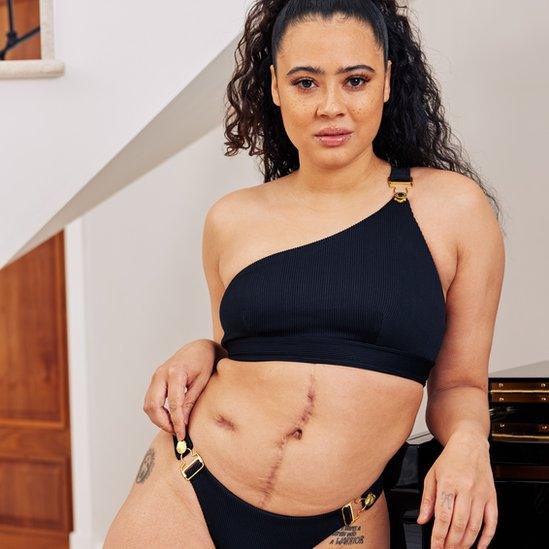
Ms Freegard works as a model and dancer and campaigns to raise awareness of inflammatory bowel disease
Ms Freegard now raises awareness of people living with IBD, modelling her scars with pride with an agency celebrating people with visible differences and on her own Instagram page.
"It's nothing to be ashamed of", she said.
"A lot of young people are so embarrassed because it's poo.
"But we all poo, it shouldn't be a taboo subject. We need to break that stigma of thinking it's something to be embarrassed about."
Sarah Sleet, CEO at Crohn's and Colitis UK and chairwoman of IBD UK, said: "Crohn's and colitis are serious conditions which aren't taken seriously.
"They cost the NHS as much as cancer and heart disease for each patient, and can be as devastating, but they lag behind in the recognition and support needed to improve lives."
Rising case numbers
Prof Sandhu, who is a co-founder of the British Society of Paediatric Gastroenterology, Hepatology and Nutrition, said more resources are urgently needed to keep up with the rising case numbers.
She said: "It needs to be centrally funded so there's allocated money.
"It's an increasing problem and there's no allowance made for that so centres are having to cope with the extra numbers without any extra funding."
Ms Freegard said the situation had been exacerbated by the coronavirus pandemic.
Many IBD patients take immunosuppressant medication and have had to shield for the past 18 months.
"Flare-ups can be (brought on) through stress and we're being told as IBD patients we can't do this, we can't do that. The pandemic has made it a lot worse," she said.
"We have two nurses and one in training for the whole of however many people in Wiltshire have IBD. It's just not enough."
Related topics
- Published30 January 2021
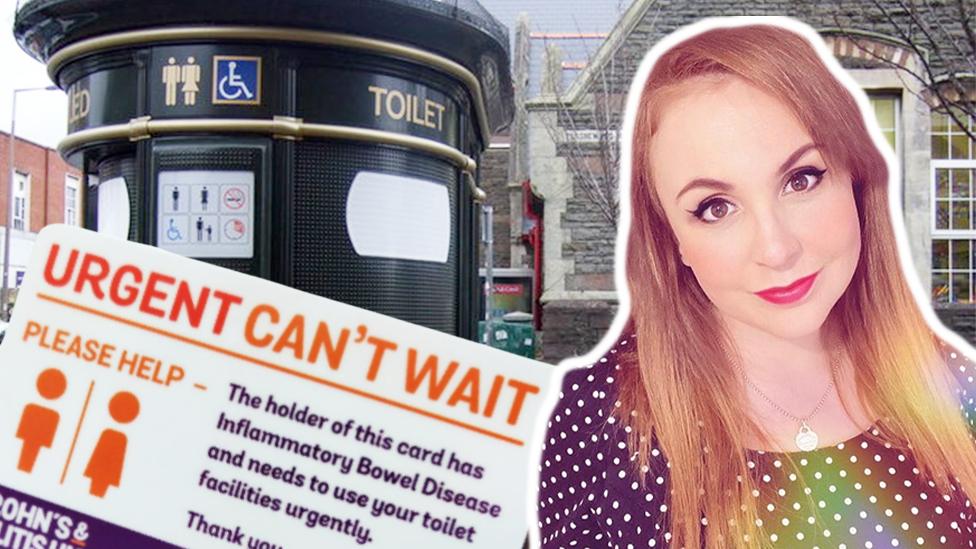
- Published12 September 2020

- Published16 April 2019
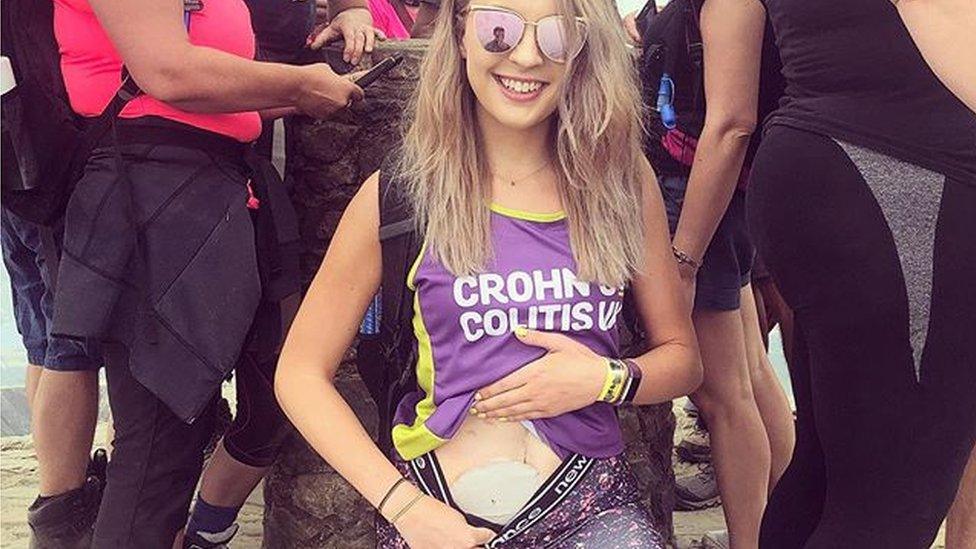
- Published4 December 2019
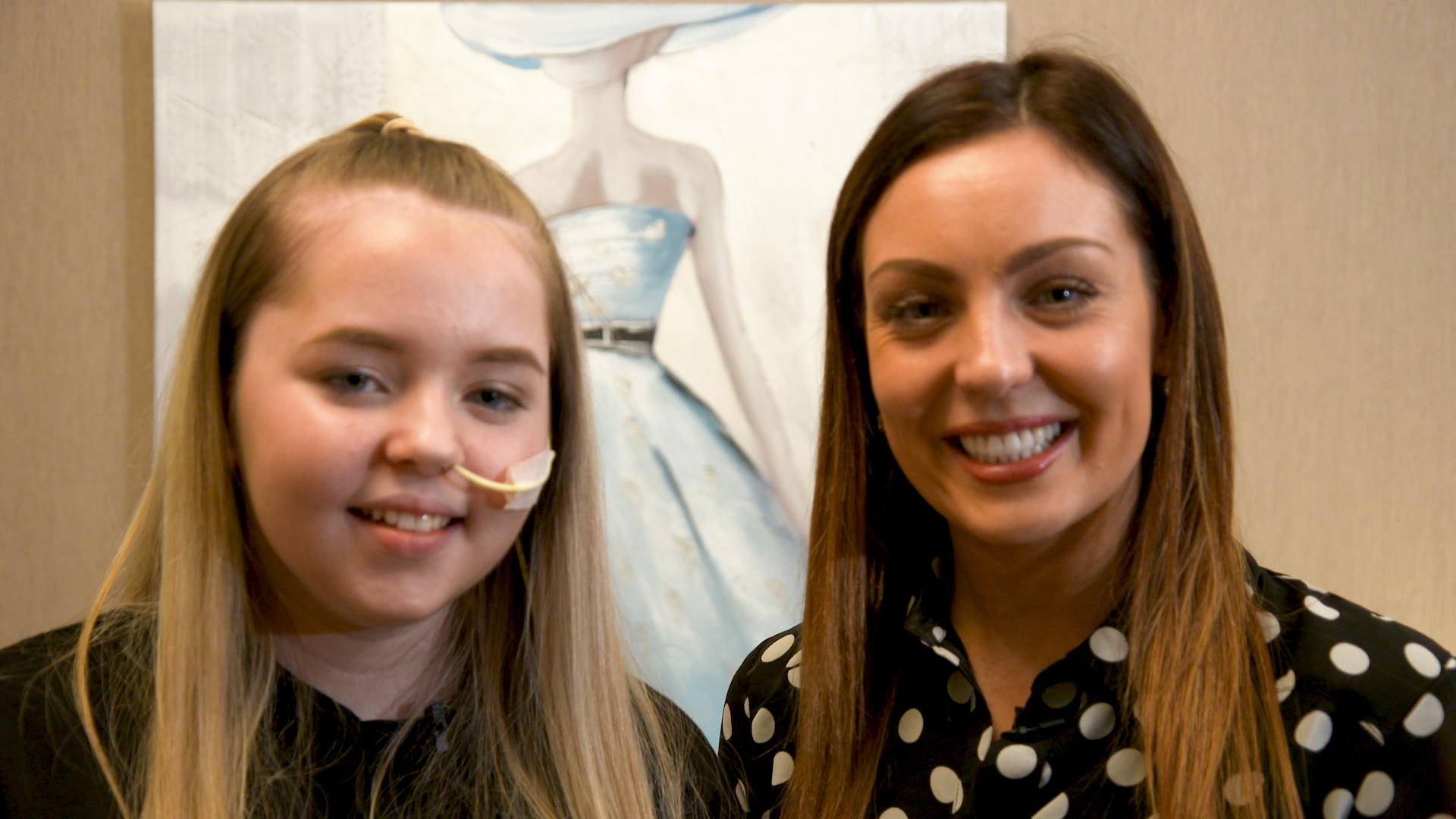
- Published28 November 2017
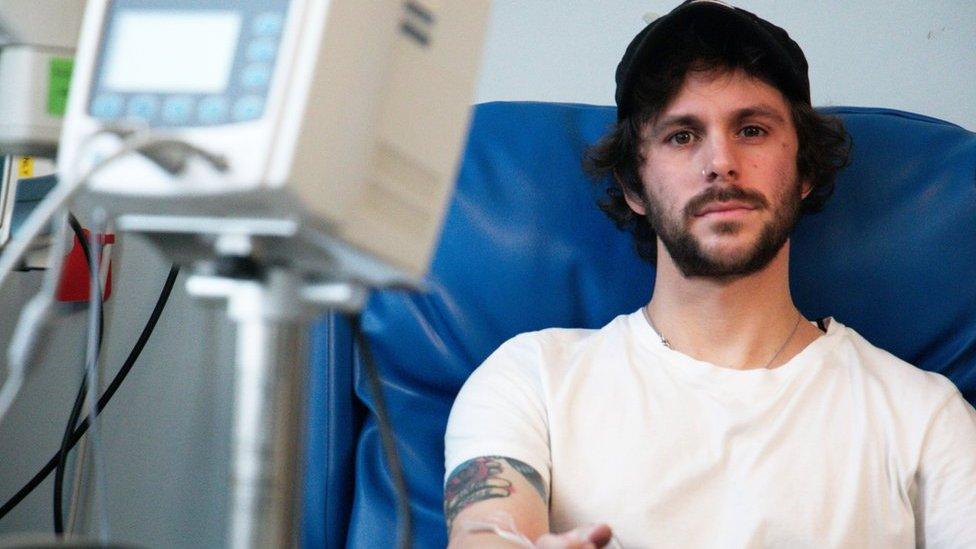
- Published8 February 2014
